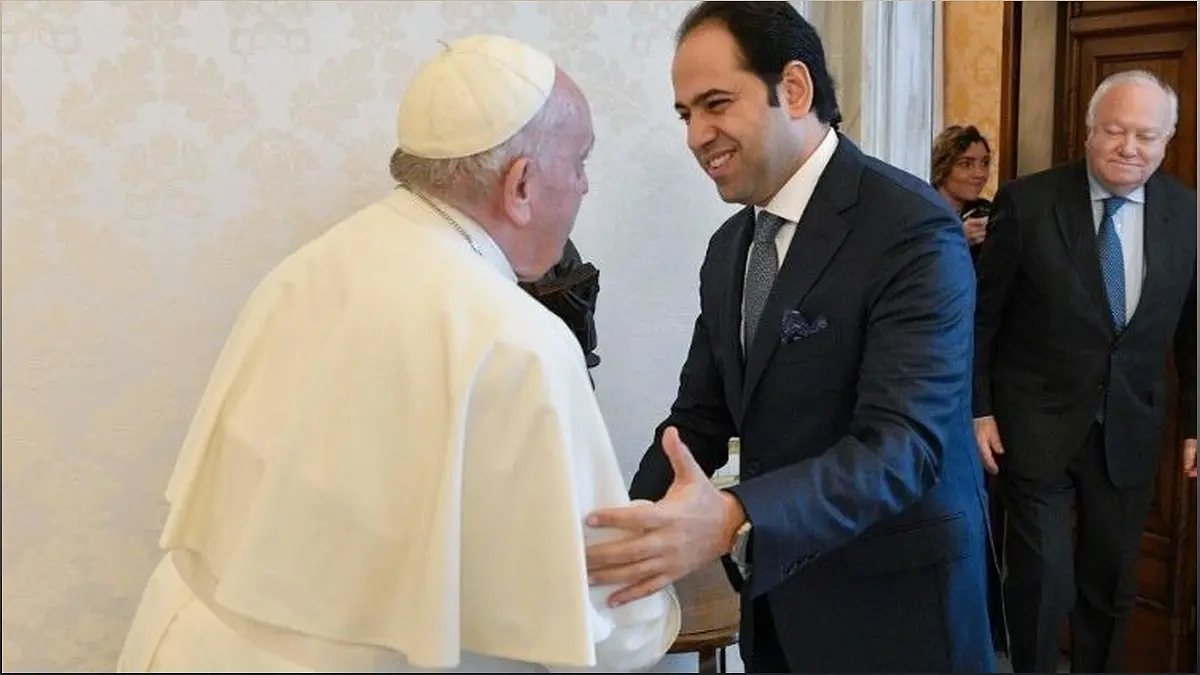The Global Faith Summit, hosted by the Muslim Council of Elders, aims to highlight the impact of climate change and the crucial role of religious leaders in mobilizing communities for climate action. In this article, we delve into the contributions of faith leaders, the power of collective action, and the inspiring example set by Pope Francis and the Grand Imam of Al-Azhar. Join us as we explore the intersection of faith and environmental stewardship at the Global Faith Summit ahead of COP28.
The Global Faith Summit: Mobilizing Religious Communities for Climate Action
Explore the mission and significance of the Global Faith Summit in addressing climate change and driving global climate action.
The Global Faith Summit, hosted by the Muslim Council of Elders, is a gathering of religious leaders from around the world to address the detrimental impact of climate change and mobilize their communities for climate action. This summit aims to highlight the role of faith leaders in driving global climate action and finding sustainable solutions to the climate crisis.
Religious communities have a powerful influence and can play a crucial role in raising awareness, inspiring action, and advocating for environmental stewardship. The Global Faith Summit provides a platform for faith leaders to come together, share their insights, and collaborate on strategies to address climate change.
By harnessing the collective strength of religious communities, the Global Faith Summit aims to send a unified message to political leaders and policymakers, urging them to prioritize climate action and work towards a sustainable future for all.
The Influence of Faith Leaders in Driving Climate Action
Discover the significant influence that faith leaders hold in driving climate action worldwide.
Faith leaders have a unique ability to inspire and mobilize their communities towards climate action. Their influence stems from their position of authority, moral guidance, and the trust placed in them by their followers.
One of the key roles of faith leaders is to raise awareness about the urgency of the climate crisis and the need for collective action. They can use their platforms to educate their communities about the impact of climate change on vulnerable populations, ecosystems, and future generations.
Moreover, faith leaders can emphasize the moral and ethical responsibility to care for the environment and promote sustainable practices. By integrating environmental stewardship into religious teachings and rituals, they can encourage their followers to adopt eco-friendly lifestyles and support initiatives that mitigate climate change.
Through their advocacy and engagement, faith leaders can also influence policymakers and contribute to shaping climate policies at local, national, and international levels. Their collective voice can amplify the call for stronger climate action and push for policies that prioritize environmental sustainability and social justice.
The Power of Collective Action: Uniting Faith Communities for Climate Action
Explore the significance of collective action among faith communities in addressing the climate crisis.
The climate crisis is a global challenge that requires collective action from all sectors of society, including faith communities. When faith communities come together, their collective efforts can have a significant impact on addressing climate change and promoting sustainable practices.
Collective action among faith communities can take various forms, including advocacy, education, and community-based initiatives. By joining forces, faith communities can amplify their message, share resources, and collaborate on projects that promote environmental sustainability.
Furthermore, collective action can foster a sense of solidarity and unity among different faith traditions, transcending religious boundaries and promoting interfaith dialogue. This collaboration can lead to a deeper understanding of shared values and a joint commitment to protecting the planet.
Through collective action, faith communities can serve as powerful agents of change, inspiring individuals and communities to adopt sustainable practices, reduce carbon footprints, and advocate for policies that prioritize the well-being of both people and the planet.
The Inspiring Example of Pope Francis and the Grand Imam of Al-Azhar
Learn about the inspiring partnership between Pope Francis and the Grand Imam of Al-Azhar in addressing climate change.
Pope Francis and the Grand Imam of Al-Azhar, Ahmed Al-Tayeb, have set an inspiring example for faith leaders worldwide through their partnership in addressing climate change. Their collaboration goes beyond interfaith dialogue and focuses on building a genuine partnership between their respective faith communities.
By working together, Pope Francis and the Grand Imam have demonstrated the power of unity and solidarity in tackling global challenges. Their joint initiatives, such as the Document on Human Fraternity, emphasize the importance of interreligious cooperation in promoting peace, justice, and environmental stewardship.
Their partnership serves as a model for other faith leaders, inspiring them to join forces and work together towards a sustainable future. By bridging religious divides and fostering dialogue, Pope Francis and the Grand Imam have shown that faith communities can play a vital role in addressing climate change and promoting harmony among diverse cultures and beliefs.
Conclusion
The Global Faith Summit serves as a powerful platform for faith leaders to come together and address the urgent issue of climate change. Through their influence and collective action, faith leaders have the potential to drive global climate action and inspire their communities to adopt sustainable practices. The partnership between Pope Francis and the Grand Imam of Al-Azhar exemplifies the transformative impact that faith leaders can have in promoting environmental stewardship and interreligious cooperation. As we look towards COP28 and beyond, let us continue to support and amplify the voices of faith leaders in their efforts to create a sustainable future for all.

